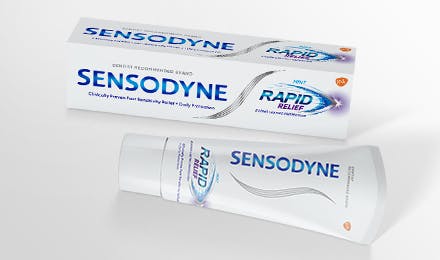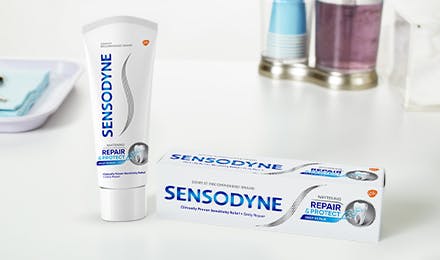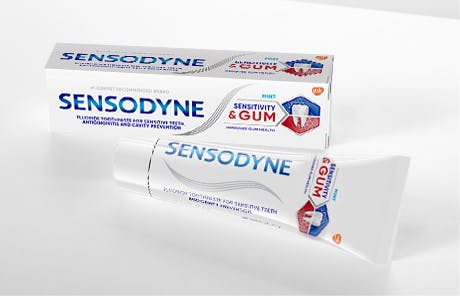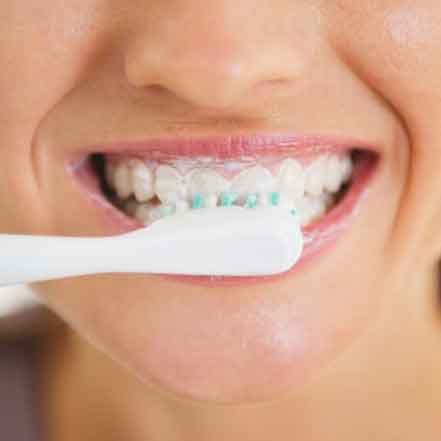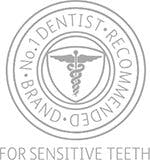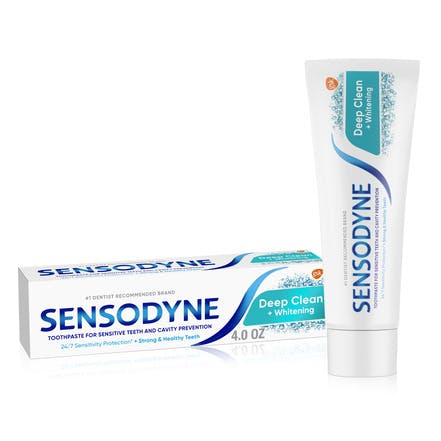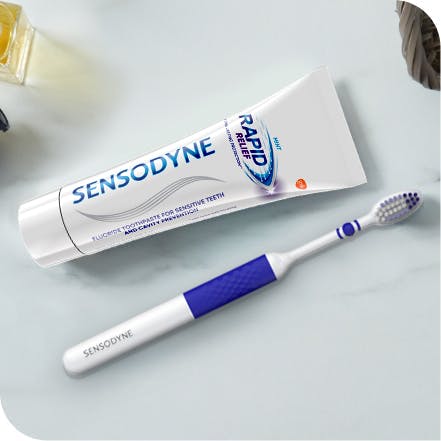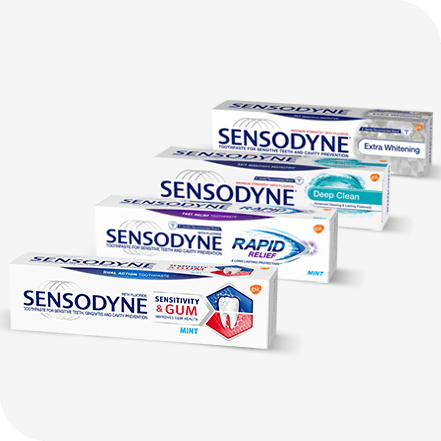How to Manage Teeth Sensitive to Hot Temperatures

A spoonful of steamy soup. A sip of hot coffee. If you have teeth that are sensitive to heat, these everyday hot foods and drinks can unexpectedly trigger a jolt of pain. Teeth with exposed dentin are more likely to be sensitive.1 Exposed dentin may be caused by gum recession or by enamel wearing away over time.1 The roots of your teeth aren't covered by hard enamel; they contain thousands of tiny dentin tubules (channels) leading to your tooth's pulp or nerve. These dentinal tubules allow stimuli to reach the nerve.3 Certain triggers—including hot foods and drinks—can aggravate these nerves, causing teeth to be sensitive to temperatures.1
Here are a few tips on how to manage your sensitive teeth to hot foods and drinks.
3 Tips for Eating and Drinking Hot Foods and Drinks

Let it Cool Down: Before taking a sip or bite of something hot, let it sit for a few minutes to reach room temperature.

Add Ice: Add an ice cube to hot drinks and soups to help cool them off.

Pair with Non-Acidic Foods: Pair hot foods and drinks that are acidic, like tomato soup or tea with lemon, with nonacidic foods like cheese, water, or bread. An acidic diet can contribute to enamel erosion and lead to increased sensitivity.1
3 Ways to Update Your Oral Care Routine
Brush twice every day with a toothpaste that provides 24/7 sensitivity protection, such as Sensodyne, for lasting relief.
ADA recommends that people brush their teeth for two minutes, twice a day. Clean your teeth with a soft-bristled toothbrush, such as the Sensodyne Sensitivity & Gum Soft Toothbrush, to minimize toothbrush abrasion and gum irritation.1
Introduce a fluoride mouth rinse into your oral care routine.2 At home fluoride rinses and fluoride treatments from your dentist help reduce your risk of teeth sensitivity and can strengthen enamel.2 Talk to your dentist about an in-office fluoride treatment.2 These generally take a few minutes and include application of a high concentration of fluoride solution, gel, foam or varnish onto your teeth with a cotton swab, brush, or rinse.2
Source Citations:
- Teeth Sensitivity. Cleveland Health Clinic. https://my.clevelandclinic.org/health/symptoms/10954-teeth-sensitivity. Accessed 6/27/2024.
- Fluoride. Cleveland Health Clinic. https://my.clevelandclinic.org/health/treatments/11195-fluoride. Accessed 7/15/24.
- Sensitive Teeth - Heat and Cold Sensitivity. MouthHealthy. ADA. https://www.mouthhealthy.org/all-topics-a-z/sensitive-teeth.


